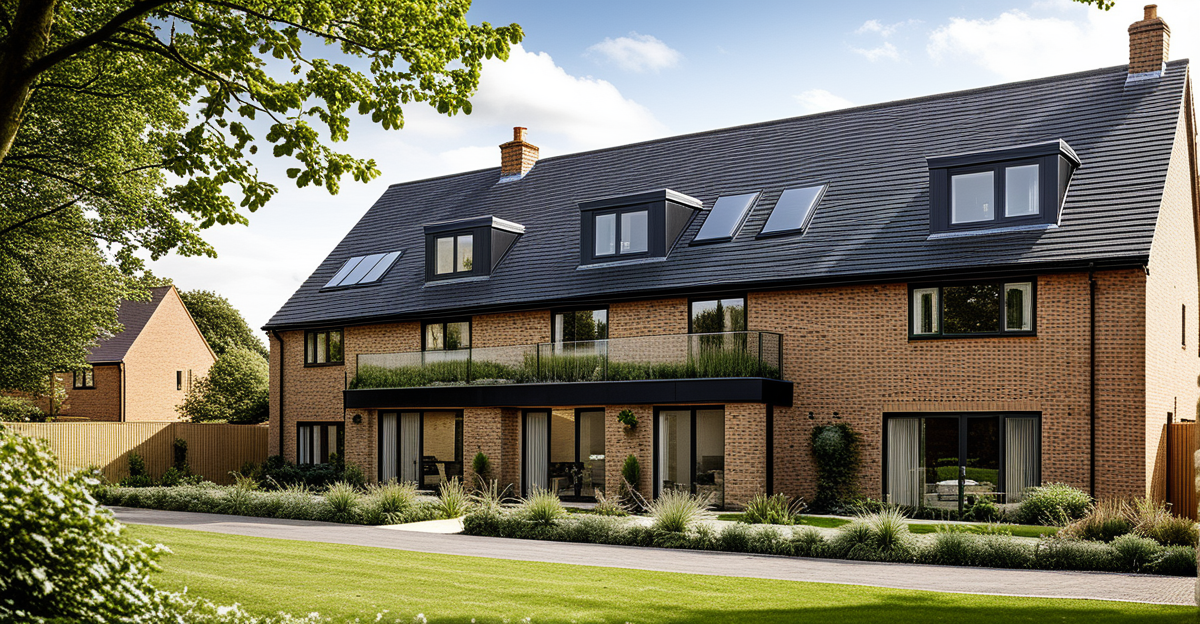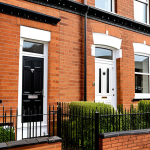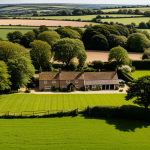The Impact of Green Building Practices on UK Property Value
Green building practices emphasize environmentally responsible design, construction, and operation. In the UK property market, these practices are increasingly relevant as buyers and investors prioritize sustainability. Green building value is reflected not only in reduced environmental footprints but also in tangible economic benefits.
Sustainable construction enhances property value primarily through improved energy efficiency, lower running costs, and increased occupant comfort. For example, features such as high-quality insulation, energy-efficient heating systems, and renewable energy installations contribute to lower utility bills. This appeals strongly to buyers looking to save money and reduce carbon emissions.
This might interest you : How tech innovations are transforming the uk real estate experience for buyers and sellers
Evidence consistently links eco-features to higher asset worth in UK properties. Studies show that homes with green certifications or energy performance certificates (EPC) often achieve better market prices and quicker sales. This appreciation in UK property appreciation stems from rising awareness and demand for sustainable living spaces.
By investing in green building practices, property owners and developers are not only supporting environmental goals but also fostering sustainable property investment opportunities that yield long-term financial returns. Enhancing a property with eco-friendly upgrades can significantly boost its market desirability and resale value.
Also read : Expert insights and best practices: how to precisely value property in the uk
Market Data and Case Studies Demonstrating Value Increases
Examining property value statistics reveals a consistent trend: sustainable properties outperform traditional ones in market resilience and price growth. Multiple studies report that UK homes with green features can command premiums between 5% and 10% over comparable non-green properties. For instance, properties with high energy performance certificates (EPC) typically sell faster and at a higher price, illustrating clear financial benefits tied to green building value.
Several UK green property case studies exemplify this trend. One notable example involves a refurbished London townhouse that incorporated solar panels, advanced insulation, and energy-efficient windows, resulting in a 12% rise in market value post-upgrade. Similarly, new eco-friendly housing developments in cities like Manchester show increased buyer interest and reduced vacancy rates, reflecting stronger UK property appreciation linked to sustainability.
Industry experts and reports also emphasize positive investment returns. Sustainable property investment often yields lower operating costs and higher rental incomes, especially as tenants increasingly seek eco-conscious living spaces. This expanding demand drives up capital values, making green buildings an attractive choice for investors aiming for long-term profitability.
Hence, integrating green upgrades not only supports environmental goals but also delivers measurable financial rewards backed by robust data and real-world examples.
Regulatory Environment and Incentives Supporting Green Upgrades
The UK green building regulations create a framework that encourages sustainable construction and renovation. Key standards include Energy Performance Certificates (EPC) and BREEAM ratings, which assess a property’s environmental impact. Compliance with these regulations is increasingly mandatory, influencing market expectations and property valuations. For instance, achieving a high EPC rating signals energy efficiency, attracting buyers focused on sustainability.
Financial incentives further motivate property owners to adopt eco-friendly upgrades. Grants and subsidies target improvements such as insulation, solar panels, and efficient heating systems. These property incentives reduce upfront costs, making sustainable investments more accessible and financially appealing. The government’s push for net-zero emissions fuels these programs, reinforcing their importance in the property sector.
Meeting sustainable standards not only benefits the environment but also enhances UK property appreciation. Properties aligned with regulations and supported by incentives often experience faster sales and higher valuations. This trend underscores the synergy between regulatory compliance and financial returns, encouraging developers and owners to prioritize green upgrades.
In summary, the regulatory environment combined with available incentives creates tangible benefits. It drives sustainable property investment by lowering barriers and rewarding environmentally responsible choices, ultimately supporting long-term green building value growth in the UK market.
Actionable Steps for Property Owners and Developers
Taking practical steps toward sustainable property improvements can directly increase UK property appreciation. Focusing on key areas such as high-performance insulation, energy-efficient heating and cooling systems, and the installation of renewable energy technologies like solar panels delivers measurable benefits. These upgrades reduce energy consumption and running costs, making properties more attractive to eco-conscious buyers and tenants.
Starting green renovations begins with assessing the property’s current energy performance and identifying the most cost-effective measures. For example, improving insulation in walls and roofs usually offers a high return on investment by lowering heating bills and improving comfort. Upgrading to smart thermostats and efficient boilers further enhances energy savings. Using sustainable materials, such as recycled timber or low-VOC paints, adds to the property’s green credentials and appeal.
Property owners may also consult with energy assessors or green building experts to tailor improvements based on the building’s characteristics and local regulations. Combining several small upgrades often results in a significant uplift in green building value and overall UK property appreciation.
By following these green renovation tips, developers and homeowners can strategically increase property value while supporting long-term sustainable property investment objectives, aligning environmental responsibility with financial gains.







